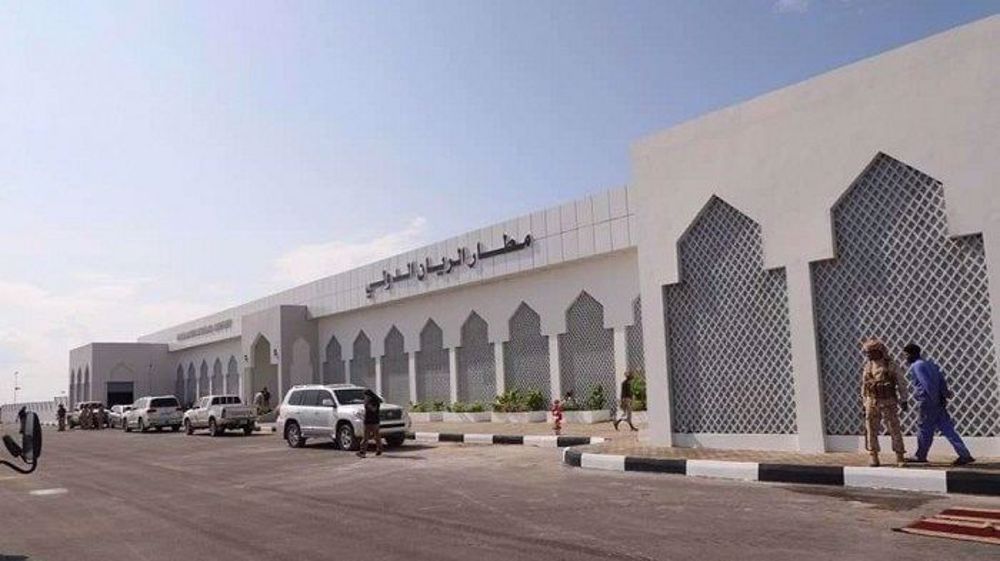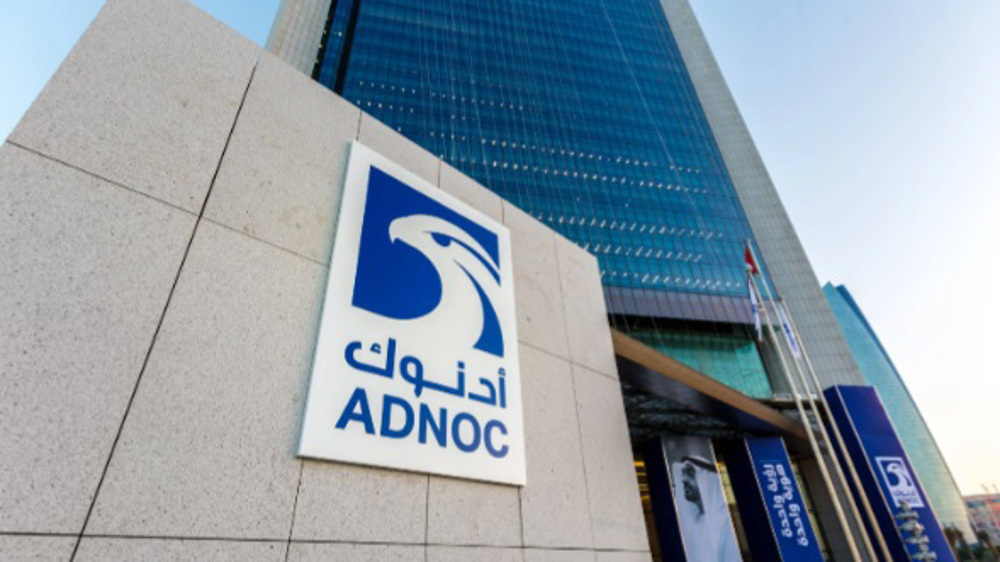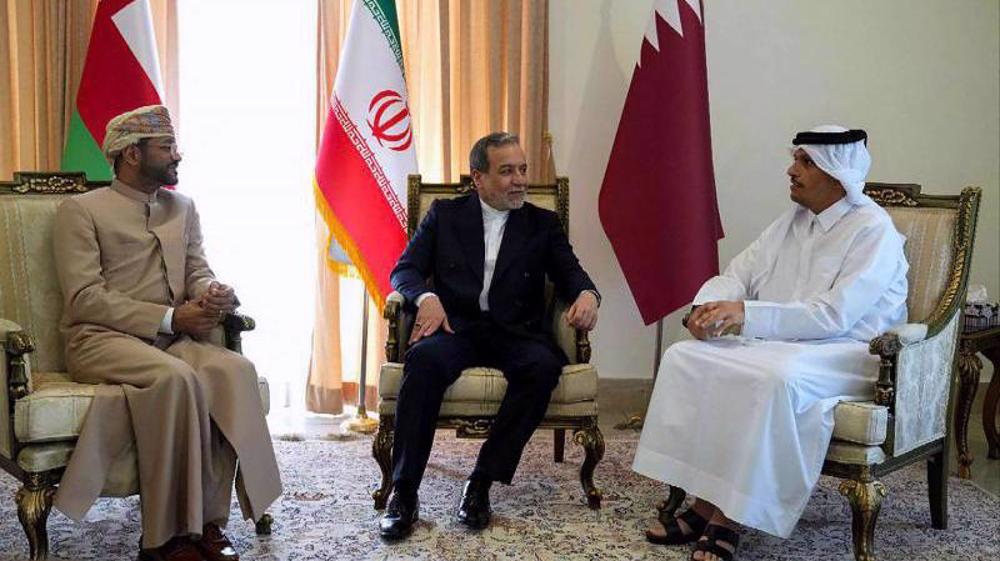Russia, Qatar say committed to boosting trade, economic ties
Russia and Qatar say they are committed to boosting trade ties at a time when Doha is facing an economic blockade by Saudi Arabia and some of its regional allies.
Russian Foreign Minister Sergei Lavrov had a "lengthy" meeting in the Qatari capital, Doha, with Qatari Foreign Minister Sheikh Mohammed bin Abdulrahman Al Thani on Wednesday.
"We are committed to bolstering trade and economic ties," media outlets quoted Lavrov as saying.
The Russian foreign minister also said Moscow "attached great importance" to economic cooperation, including in the energy sector, between the two countries.
Lavrov earlier met with Emir of Qatar Tamim bin Hamad Al Thani.
Saudi Arabia, Bahrain, Egypt, and the United Arab Emirates cut their diplomatic ties with Qatar on June 5, accusing Doha of sponsoring terrorism and destabilizing the region. The Saudi-led bloc has also imposed sanctions against the country, including restrictions on Qatari aircraft using their airspace.
Doha rejects the accusation, saying it is an attack on Qatar's sovereignty.
Qatar FM accuses Riyadh of ignoring Doha's call for dialogue
Sheikh Mohammed accused the regime in Riyadh and its regional allies of ignoring "on at least 12 different occasions" calls by Qatar for talks on resolving the diplomatic impasse.
"Now we have reached 90 days of the crisis, we are still in the same position," the Qatari foreign minister said, adding, "We haven't seen any change or development in reaching the end of the crisis."
Lavrov, who has also visited Kuwait and the United Arab Emirates as part of his Middle East tour, said the disputing countries should work with regional mediator Kuwait to resolve the crisis.
"We are convinced that there's a need to seek a solution by searching for mutually beneficial approaches through dialect," said the Russian foreign minister. "It's in our interests for the GCC to be united and strong," he added, referring to the Persian Gulf Cooperation Council.

Diplomatic crisis stems from Saudi failure in region
Mutlaq Majed al-Qahtani, the Qatari foreign minister’s special envoy for counterterrorism and mediation, earlier said the Saudi-led quartet of boycotters had failed to bring Qatar to its knees. He said Riyadh’s "smear campaign" against Doha was only reminiscent of Saudi Arabia's own ideological support for the Daesh Takfiri terrorist group.
Observers say the Saudi regime’s recent fury against Qatar stems from Riyadh’s both military and political failures in Yemen, Syria, and Iraq. Saudi Arabia’s dream of becoming the dominant power in the region seems to have shattered and gone down in flames.
The Saudi failures, some believe, could cost a lot and prove that Mohammed bin Salman Al Saud, the deputy crown prince and defense minister, has zero political and military experience.
The enhanced Saudi involvement in Iraq and Syria on the side of terrorists had damaging and unexpected consequences. In 2011, Saudi Arabia and its allies, including Qatar, believed that Syrian President Bashar al-Assad could be quickly driven from power.
Qatar crisis strains Saudi-led alliance in Yemen
The tension in ties between Qatar and the four Arab countries is straining a Saudi-led coalition backing Yemen's former President Abd Rabbuh Mansour Hadi.
At the heart of the crisis is the accusation that Qatar supports the Muslim Brotherhood, a movement that coalition mainstays Saudi Arabia and the United Arab Emirates have designated as a terrorist group.
However, the Hadi administration is packed with supporters of the Islah party, an affiliate of the Muslim Brotherhood, threatening the unity of the alliance, which has already been weakened by the withdrawal of Qatar’s forces after the row erupted in early June.
The Persian Gulf rift has cast a shadow on the Saudi-backed administration and could split it as Hadi’s ministers linked to Islah sympathize with Qatar. The administration has five cabinet ministers from the Islah party, which also has thousands of followers fighting in Yemen.
Since March 2015, a Saudi-led coalition has been fighting in Yemen, with Riyadh providing airstrikes and the United Arab Emirates most of the ground troops. Riyadh has spent billions on the campaign against Yemen, in which more than 12,000 people have been killed.
The objective of the campaign was to eliminate the Houthi Ansarullah movement and reinstall Hadi and secure the Saudi border. Riyadh, however, has failed to achieve the goal despite the wealth of funds, weapons and mercenaries at its disposal.
Kata’ib Hezbollah asks fighters to prepare for 'war' in support of Iran
Israeli warplanes conduct new aggressions across southern Lebanon
Democrats threaten govt. shutdown after second ICE killing in Minneapolis
MSF to disclose limited list for Gaza staff after Israel revoked its aid licenses
VIDEO | India defies Western push at UN Rights Council on Iran
Cuba's president observes drills, vows high cost for any US aggression
Iran dismisses Nazi-style propaganda on riot death toll
Israel kills more civilians in Gaza amid relentless ceasefire violations










 This makes it easy to access the Press TV website
This makes it easy to access the Press TV website